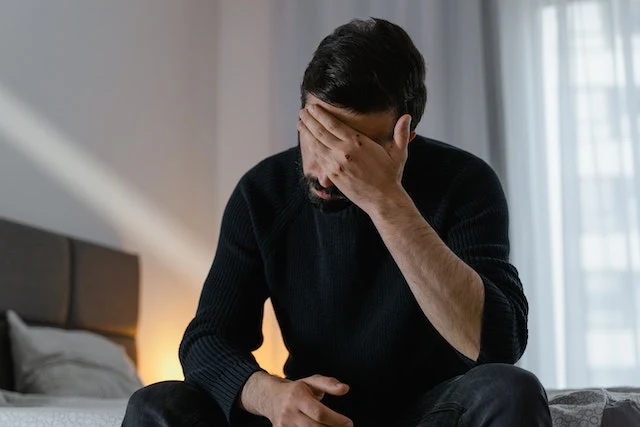Feeling like you are ugly compared to others can be a challenging and distressing experience. The pressure to conform to societal standards of beauty can often lead to feelings of inadequacy and low self-esteem. There are many potential reasons why someone may feel this way, from negative self-talk and personal expectations to past experiences and trauma. It's important to recognize that beauty is subjective and that everyone has their own unique qualities that make them attractive. In this article, we will explore some of the reasons why someone may feel like they are ugly compared to others, and offer some tips on how to build a more positive self-image.
Societal Standards
Society often puts a strong emphasis on physical appearance and promotes a narrow definition of beauty that can be difficult for many people to live up to. Seeing images of traditionally attractive people in the media can make others feel like they don't measure up and are therefore unattractive.
Negative Self-Talk
It's easy to fall into patterns of negative self-talk, particularly when it comes to physical appearance. Constantly telling oneself that they are unattractive can lead to a deep-seated belief that they are ugly.
Comparing Oneself to Others
Comparing oneself to others, particularly those who are considered conventionally attractive, can be detrimental to self-esteem. It's important to remember that everyone has their own unique qualities and beauty.
Personal Experiences
Negative experiences such as bullying, teasing, or rejection can lead to feelings of low self-worth and unattractiveness.
Mental Health Issues
Mental health issues such as depression or anxiety can impact self-perception and make someone feel unattractive.
Trauma
Traumatic experiences, such as abuse or neglect, can lead to negative self-image and feelings of unattractiveness.
Physical Differences
Physical differences such as scars, birthmarks, or disabilities can make someone feel like they don't fit into societal standards of beauty, leading to feelings of unattractiveness.
Personal Expectations
Having unrealistic expectations of oneself, such as trying to achieve a certain body shape or weight, can lead to feelings of inadequacy and unattractiveness when those expectations are not met.
Past Relationships
Negative experiences in past relationships, such as being cheated on or criticized for one's appearance, can lead to feelings of unattractiveness and low self-esteem.
Lack of Support
A lack of support from family or friends can make someone feel isolated and alone, leading to feelings of unattractiveness and low self-worth.
How to Build a More Positive Self-Image
Acknowledge the Negative Thoughts
First and foremost, it's important to recognize that comparing yourself to others is a surefire way to feel bad about yourself. Social media and other forms of media can be particularly damaging, as they often present unrealistic and idealized images of beauty. It's important to remember that these images are often heavily edited and curated, and do not represent reality. Try to limit your exposure to these images, or unfollow accounts that make you feel bad about yourself.
Examine the Source of Your Negative Thoughts
It's also worth examining where your negative thoughts about your appearance come from. Did someone make hurtful comments about your appearance in the past? Are you comparing yourself to an ideal that you feel like you can never live up to? Recognizing the source of your negative thoughts can help you to begin to challenge and change them.
Focus on Your Strengths and Accomplishments
One powerful technique for building a more positive self-image is to focus on your strengths and accomplishments. Rather than fixating on your appearance, think about all the things that you are good at, and all the things that you have achieved. Make a list of these things and refer back to it when you are feeling down.
Surround Yourself with Positive Influences
It can also be helpful to surround yourself with positive influences. Spend time with people who lift you up and make you feel good about yourself, rather than those who tear you down or make you feel insecure.
Seek Professional Help
Finally, if you are really struggling with low self-esteem and negative thoughts about your appearance, it may be helpful to seek professional help. A therapist can help you to work through these feelings and develop strategies for building a more positive self-image.
Conclusion
Building a more positive self-image takes time and effort. By acknowledging and challenging negative thoughts, examining the source of these thoughts, focusing on your strengths and accomplishments, surrounding yourself with positive influences, and seeking professional help if needed, you can begin to build a more positive self-image and feel better about yourself. Remember, your worth is not determined by your physical appearance, and you are worthy of love and respect just the way you are.


Post a Comment